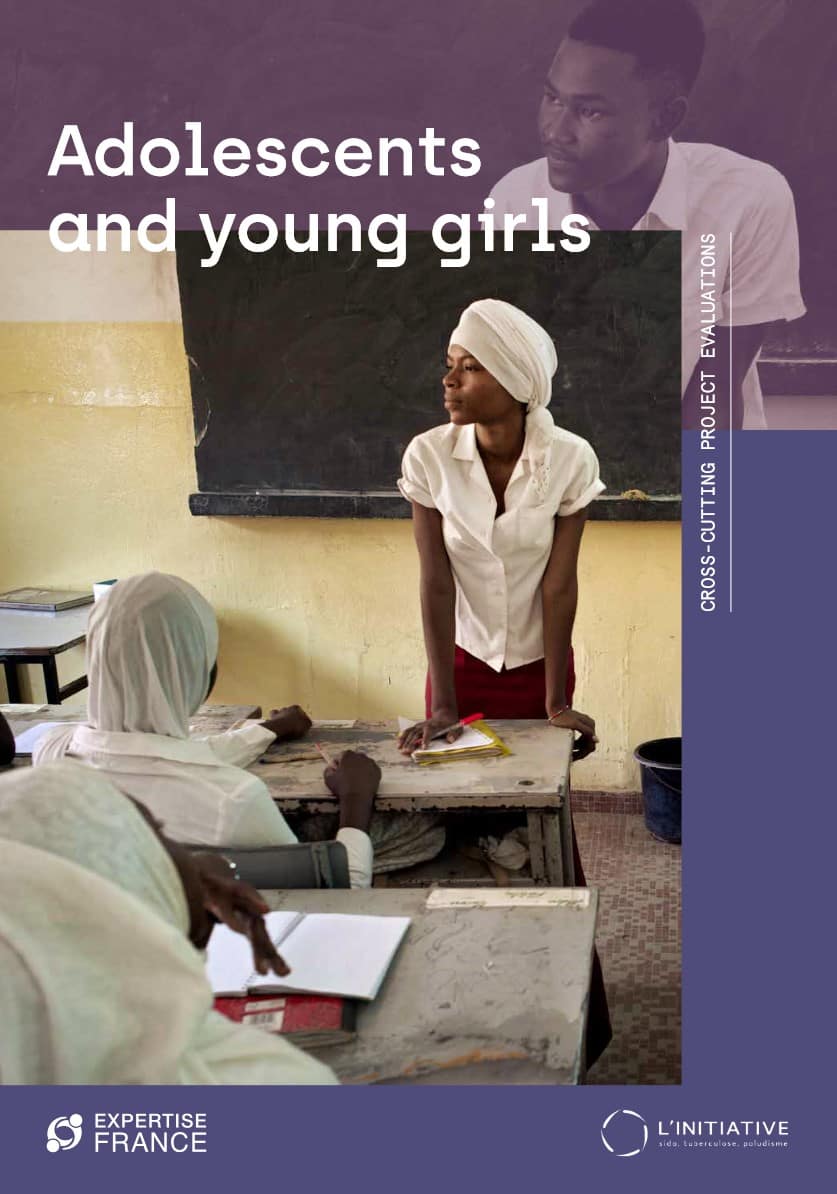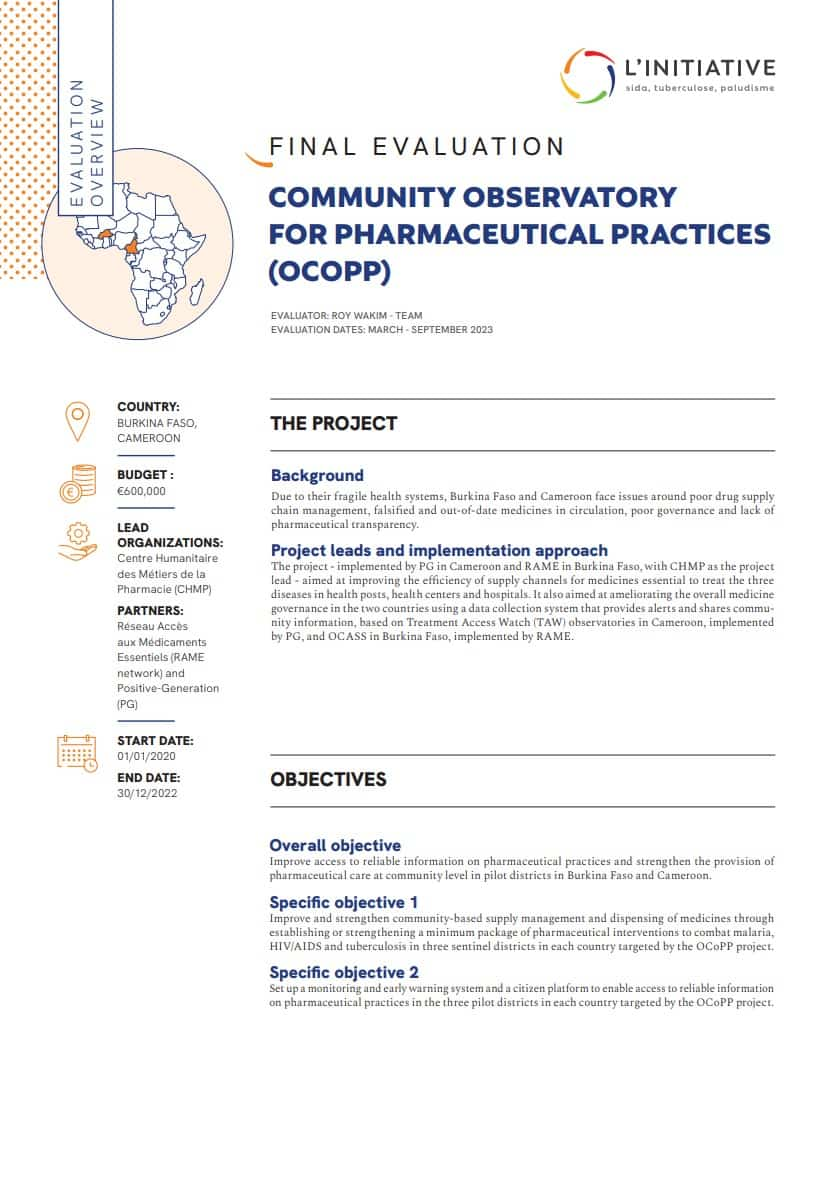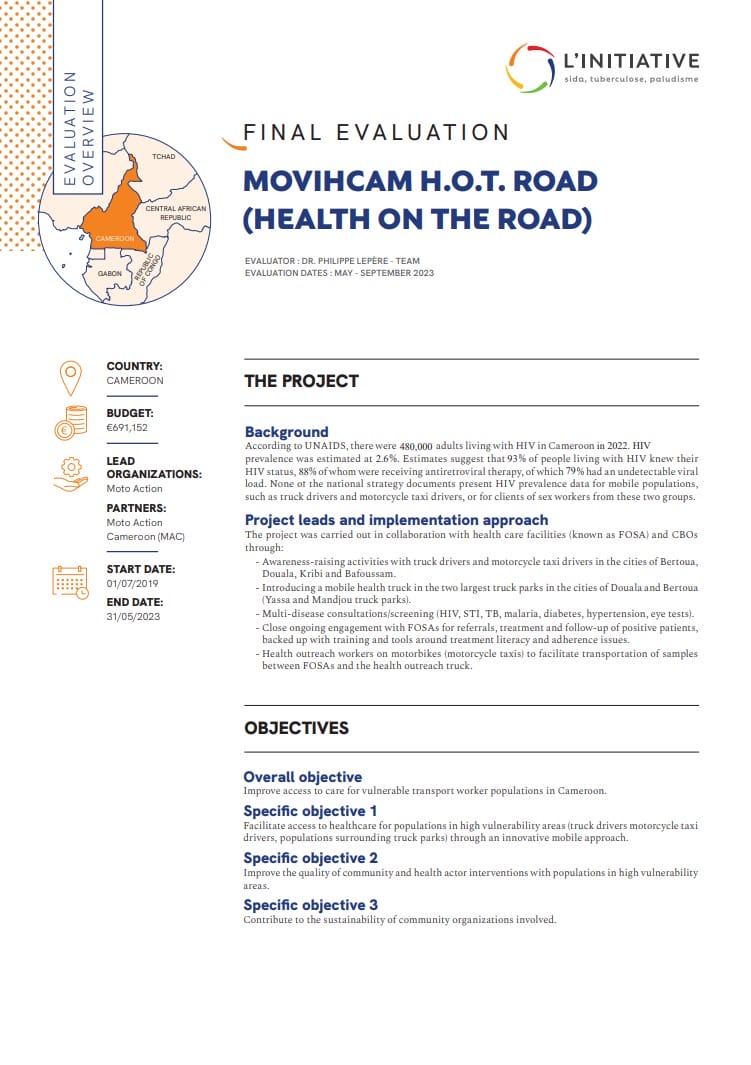
Cross-cutting Evaluation – Adolescents and young girls, Africa and South Asia
The cross-cutting evaluation “Adolescents and young girls” carried out from 2018 to 2020 focused on six projects. In order to address the specific vulnerabilities of young people in sexual and reproductive health (SRH), the evaluation produced the following recommendations:
- Consider the different age categories for girls and boys in designing interventions. Adolescents are not a homogenous group and do not all have the same needs depending on their age and gender
- Prioritize the involvement of adolescents and local partners from the project design stage, particularly in identifying needs.
- Build on effective good practices identified in the projects evaluated: sexual and reproductive health education in schools; peer education; use of information and communication technologies; mobilization of religious leaders; involvement of parents; mobilization and capacity building of service providers….
The results of this cross-cutting evaluation have also enriched the capitalization work on addressing sexual and reproductive health challenges, carried out by L’Initiative on this theme. At the heart of this capitalization, the experiences in the projects selected on this theme have made it possible to question the know-how of the organizations, their difficulties and possible levers of intervention on different aspects: peer education, multi-actor mobilization, training of personnel in contact with young people, the use of digital technologies, and the integration of the gender dimension. This collective learning process, which is embodied in 6 practical sheets, has enabled to identify two major areas of intervention in SRH, including the adaptation of services to the specificities of adolescents and young girls. This exercise has allowed us to highlight areas for reflection and operational solutions in terms of SRH intervention, such as:
- The integration of social networks in the range of SRH awareness actions. Experiences conducted in the field of ICTs offer an opportunity to reach this crucial target in the fight against pandemics.
- Peer education projects emphasize the importance of multi-stakeholder mobilization to help improve relationships between adolescents and health care providers and to increase the skills of health care providers to better meet the needs of adolescents.
- Awareness in schools is a good way to raise awareness of SRH issues at an early stage and as broadly as possible among children and adolescents.


